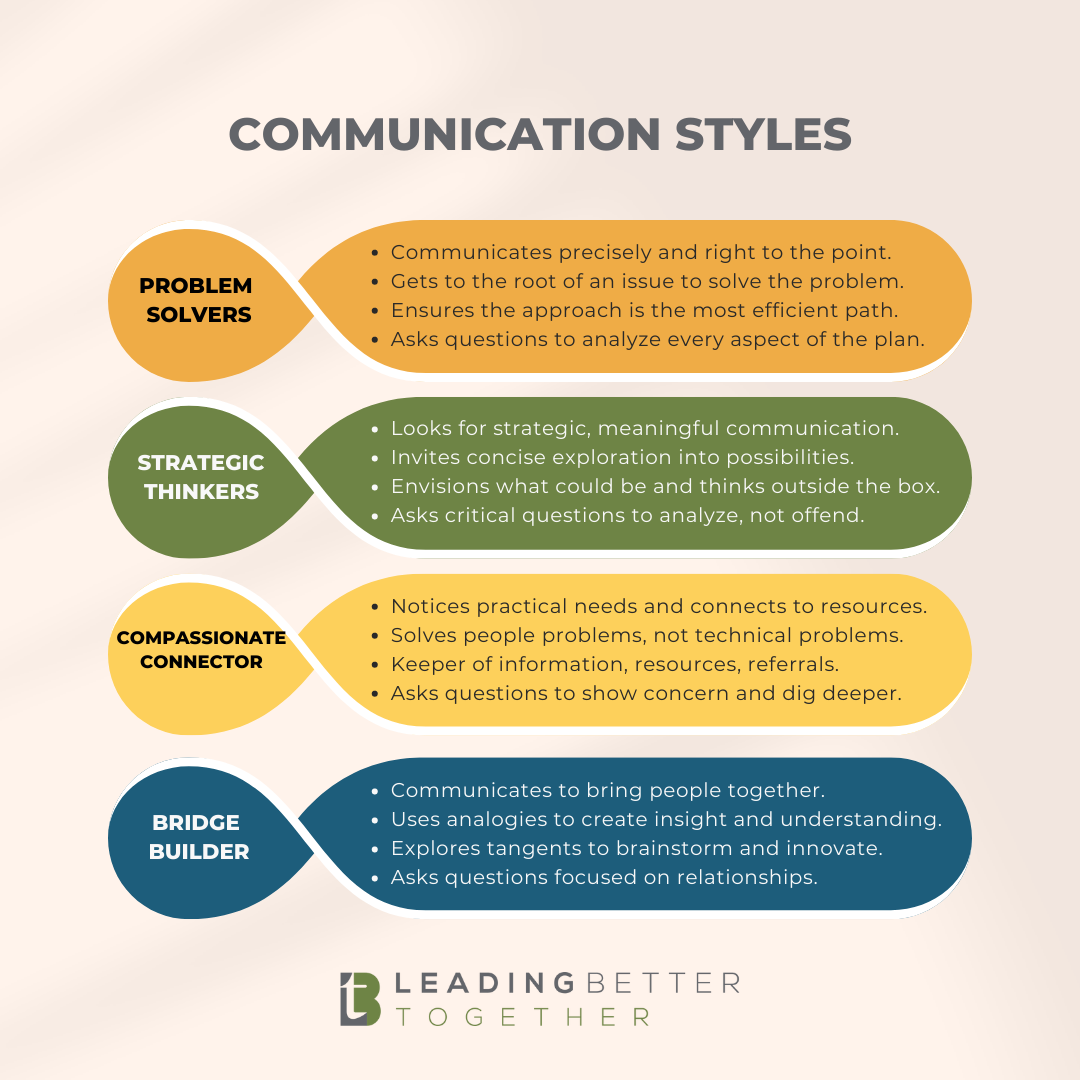Silence Isn’t Golden: Keys to Productive Dialogue
Mar 08, 2023
Whenever people come together to work as a team, conflict should be expected. There will be differences of opinions, different ways to solve problems, alternative perspectives. Engaging in a healthy dialogue on these differences makes the team work better together – and more importantly makes decisions, results, cohesion and processes better. Productive dialogue is foundational to casting a vision that creates buy-in and doing the work to achieve that vision.
Refresh on the different MBTI communication styles:

The challenge is when this productive dialogue doesn’t happen and instead the team experiences either artificial harmony or destructive conflict. We have all seen the consequences of destructive conflict, but it’s opposite, artificial harmony, is equally as damaging but not as immediately noticeable.
- Misgivings are not shared leading to more mistakes or diminished quality
- Increases in passive-aggressive acts (late work, ignoring requests, half-heartedly following decisions)
- Spending too much time and energy just getting along instead of getting things done
- Poor stewardship of resources because requests are not evaluated critically
- Goals are unclear, not really agreed upon and lack individual ownership
Curphy and Hogan in the book, The Rocket Model, point out that “many teams maintain a climate of artificial harmony so that controversial issues, difficult topics, and disagreements never come up because members come to meetings with their lips stapled.”
When people have doubts but don’t speak up it’s a symptom of artificial harmony. It can give leaders a false sense of security – thinking they don’t have a problem when it’s a slow boil under the surface.
This phenomenon becomes a barrier in ministry settings where Christian values and biblical truths can be misapplied to actually discourage the tougher conversations. Avoiding the process of working through differences deprives Christian leaders of the opportunity to develop respectful, productive dialogue.
This kind of dialogue can only be developed and refined with practice in real-time situations. Mistakes will be made. No quick fix can create healthy dialogue when it is lacking. Leaders get the honor of guiding their teams through these learning opportunities.
Even healthy teams never truly arrive. Leaders who stay tuned into the “pulse” of their team’s communication will notice non-verbal hesitation, sense when the atmosphere shifts, question when there are no disagreements and always be pushing for growth in team communication.
Refresh on ways to communicate with each MBTI type:

What's Next?
Whether your team is experiencing symptoms of artificial harmony or you want to encourage continued productive dialogue that builds vision and gets things done, I want to know your key questions. Let’s find the answers together!
Stay Connected
Get resources, motivation, and leadership support
delivered straight to your inbox.
We hate SPAM. We will never sell your information, for any reason.


